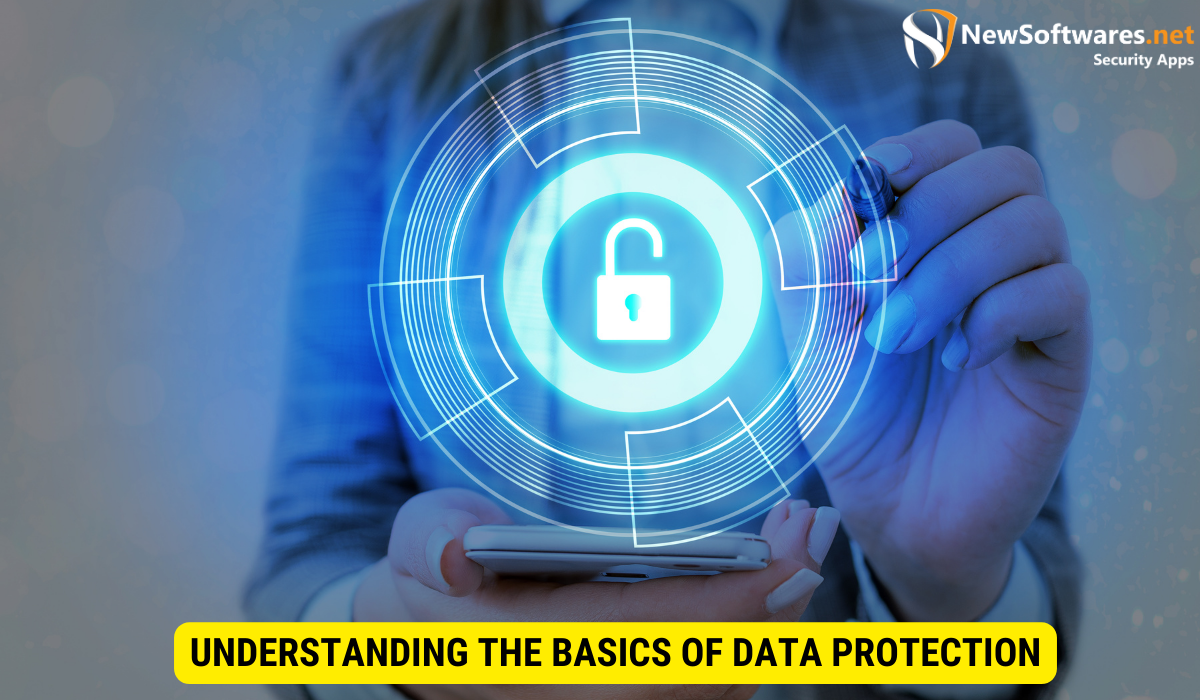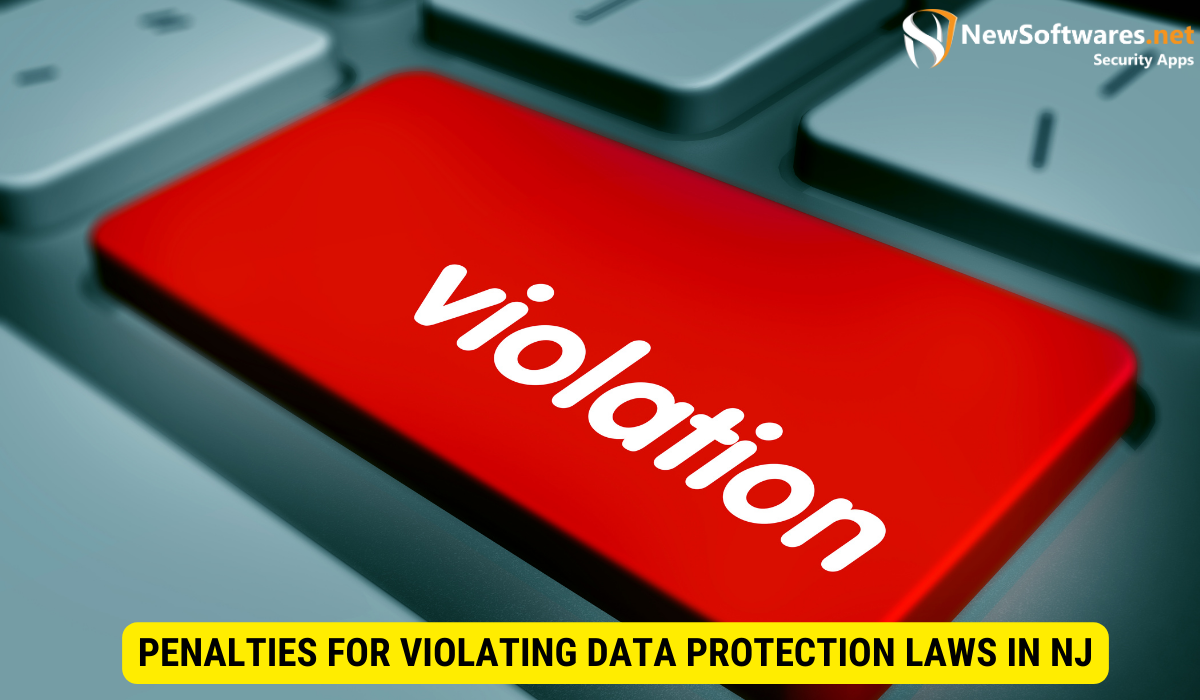New Jersey’s privacy laws emphasize protecting personal data through specific legislations like the New Jersey Identity Theft Prevention Act, Consumer Fraud Act, and Data Breach Notification Act. These laws establish guidelines for data collection, storage, and breach notification, ensuring businesses safeguard personal information and uphold individual rights.
New Jersey has taken significant steps to protect personal data through its privacy laws. Individuals and businesses alike need to understand these laws and their implications. Together, we will explore the basics of data protection, New Jersey’s approach to safeguarding personal information, the rights of individuals, the obligations of businesses, and the penalties for violating these laws.
Understanding the Basics of Data Protection

Definition of Data Protection
Data protection refers to the safeguards and procedures put in place to ensure the security and privacy of personal data. Personal data includes any information that can be used to identify an individual, such as their name, address, social security number, and financial information.
In an increasingly interconnected world, where technology plays a central role in our daily lives, the need for data protection has become more critical than ever. With the rise of online platforms, social media, and e-commerce, individuals constantly share their personal information without realizing the potential risks involved. This is where data protection protects against the ever-looming threat of data breaches and unauthorized access.
When it comes to data protection, organizations and individuals alike must adhere to strict guidelines and regulations to ensure that personal data is handled responsibly. These guidelines often include implementing robust security measures, establishing privacy policies, and obtaining explicit consent from individuals before collecting and processing their data.
Importance of Data Protection
Data protection is crucial in today’s digital age, where personal information is constantly being collected and processed. Effective data protection measures help prevent unauthorized access, misuse, and breaches that can lead to identity theft, fraud, and other harmful consequences for individuals.
Imagine a world without data protection. Personal information would be vulnerable to exploitation, exposing individuals to various risks. Hackers and cybercriminals would have a field day, exploiting weaknesses in security systems to gain access to sensitive data. This could result in financial losses, reputational damage, and even emotional distress for the victims.
Furthermore, data protection is not just about protecting individuals’ personal information; it also plays a crucial role in maintaining trust between organizations and their customers. When individuals feel confident that their data is being handled securely and responsibly, they are more likely to engage in online transactions, share personal information, and participate in digital services.
From a legal standpoint, data protection has gained significant attention in recent years. Governments worldwide have recognized the importance of safeguarding personal data and have introduced legislation to regulate its handling. The European Union’s General Data Protection Regulation (GDPR) is one such example, which imposes strict obligations on organizations that process personal data of EU citizens.
In conclusion, data protection is not just a buzzword but a fundamental aspect of our digital society. It ensures that personal data is handled carefully, protecting individuals from potential harm and maintaining trust in the digital world. As technology advances, data protection will only grow, making it essential for organizations and individuals to prioritize the security and privacy of personal information.
New Jersey’s Approach to Data Protection
New Jersey takes the privacy and protection of its residents’ personal information seriously. The state has enacted several laws to safeguard individuals and businesses from data breaches and identity theft. These laws include the New Jersey Identity Theft Prevention Act, the New Jersey Consumer Fraud Act, and the Data Breach Notification Act. By implementing these laws, New Jersey aims to create a secure environment for its residents to conduct their personal and business affairs.
Overview of New Jersey Privacy Laws
The New Jersey Identity Theft Prevention Act is designed to prevent and mitigate identity theft. It requires businesses to implement safeguards to protect personal information and to properly dispose of records containing such information. This act also establishes penalties for individuals who commit identity theft, ensuring that those who commit such crimes are held accountable.
The New Jersey Consumer Fraud Act is another crucial legislation protecting consumers from fraudulent practices. It prohibits deceptive practices, false advertising, and unfair business practices. This act empowers consumers to seek legal remedies if they have been victimized by fraudulent activities, ensuring their rights are protected.
The Data Breach Notification Act requires businesses to notify individuals in the event of a data breach that compromises their personal information. This act ensures that affected individuals are promptly informed about the breach so that they can take appropriate measures to protect themselves from potential harm. By mandating timely notification, New Jersey aims to minimize the negative impact of data breaches and enable individuals to safeguard their personal information proactively.
Specific Provisions for Data Protection in NJ
In addition to the comprehensive privacy laws mentioned above, New Jersey law imposes specific obligations on businesses to protect personal data. Businesses are required to take reasonable measures to safeguard personal information in their possession. This includes implementing and maintaining robust security systems, protocols, and procedures to prevent unauthorized access or disclosure of personal information.
By imposing these obligations, New Jersey ensures that businesses protect the personal information they collect from their customers and clients. This proactive approach helps build trust between businesses and consumers, as individuals can feel confident that their data is handled carefully and diligently.
Furthermore, New Jersey law mandates that businesses notify individuals in the event of a data breach that compromises their personal information. This notification must be provided on time, allowing affected individuals to take necessary steps to protect themselves from potential harm. By requiring prompt notification, New Jersey ensures that individuals have the opportunity to mitigate any potential damage caused by a data breach.
In conclusion, New Jersey’s approach to data protection is comprehensive and robust. The state’s privacy laws, including the New Jersey Identity Theft Prevention Act, the New Jersey Consumer Fraud Act, and the Data Breach Notification Act, provide a strong framework for safeguarding personal information. By imposing obligations on businesses and empowering individuals, New Jersey aims to create a secure environment where residents can trust that their data is handled responsibly.
Rights of Individuals under NJ Privacy Laws
Consent and its Role in Data Protection
One of the fundamental rights individuals have under New Jersey privacy laws is the right to consent. Businesses must obtain the explicit consent of individuals before collecting, using, or disclosing their data. Consent should be freely given, specific, informed, and unambiguous.
Rights to Access and Correct Personal Data
New Jersey privacy laws also grant individuals the right to access the data held by businesses. Individuals have the right to request information about how their data is being used and to correct any inaccuracies. Businesses must respond to these requests within a reasonable timeframe.
Obligations of Businesses under NJ Privacy Laws
Data Collection and Storage Guidelines
New Jersey businesses must adhere to strict guidelines when collecting and storing personal data. They must ensure that personal data is collected for legitimate purposes, that the collection is transparent and limited to what is necessary, and that appropriate security measures are in place to protect the data from unauthorized access or disclosure.
Data Breach Notification Requirements
Businesses must promptly notify affected individuals and relevant authorities in a data breach. The notification must include the nature of the breach, the types of personal data affected, and any steps individuals can take to mitigate the potential harm caused.
Penalties for Violating Data Protection Laws in NJ

Civil Penalties and Fines
Businesses violating New Jersey privacy laws may face civil penalties and fines. The exact penalties vary depending on the nature and severity of the violation. Fines can range from a few hundred to thousands per violation.
Criminal Charges and Penalties
Individuals or businesses may face criminal charges and penalties in intentional or willful violation of data protection laws. These penalties can include fines, imprisonment, or both, depending on the violation’s circumstances.
Key Takeaways
- New Jersey has stringent privacy laws in place to protect personal data.
- Businesses are required to implement appropriate security measures to safeguard personal information.
- Individuals have the rights to consent, access, and correct data.
- Data breach notification requirements ensure that affected individuals are informed promptly.
- Violating data protection laws can result in civil penalties, fines, or criminal charges.
FAQs
What are the main privacy laws in New Jersey regarding data protection?
Key laws include the New Jersey Identity Theft Prevention Act, Consumer Fraud Act, and Data Breach Notification Act, focusing on securing personal data and preventing identity theft.
Do New Jersey’s privacy laws require businesses to obtain consent for data collection?
Yes, businesses must obtain explicit consent from individuals before collecting, using, or disclosing their data, ensuring transparency and individual control.
What rights do individuals have under New Jersey privacy laws?
Individuals have rights to consent, access, correct inaccuracies in their personal data, and be notified of data breaches.
What are the obligations of businesses under these laws?
Businesses must adhere to data collection and storage guidelines, implement robust security measures, and promptly notify affected parties and authorities of data breaches.
What penalties exist for violating data protection laws in New Jersey?
Violations can lead to civil penalties, fines, and in cases of intentional or willful misconduct, criminal charges.
Conclusion
In conclusion, New Jersey has implemented robust privacy laws to protect personal data and ensure the security and privacy of its residents. Individuals have rights regarding their data, and businesses must safeguard this information. Compliance with these laws is crucial to prevent data breaches and protect individuals from potential harm.
